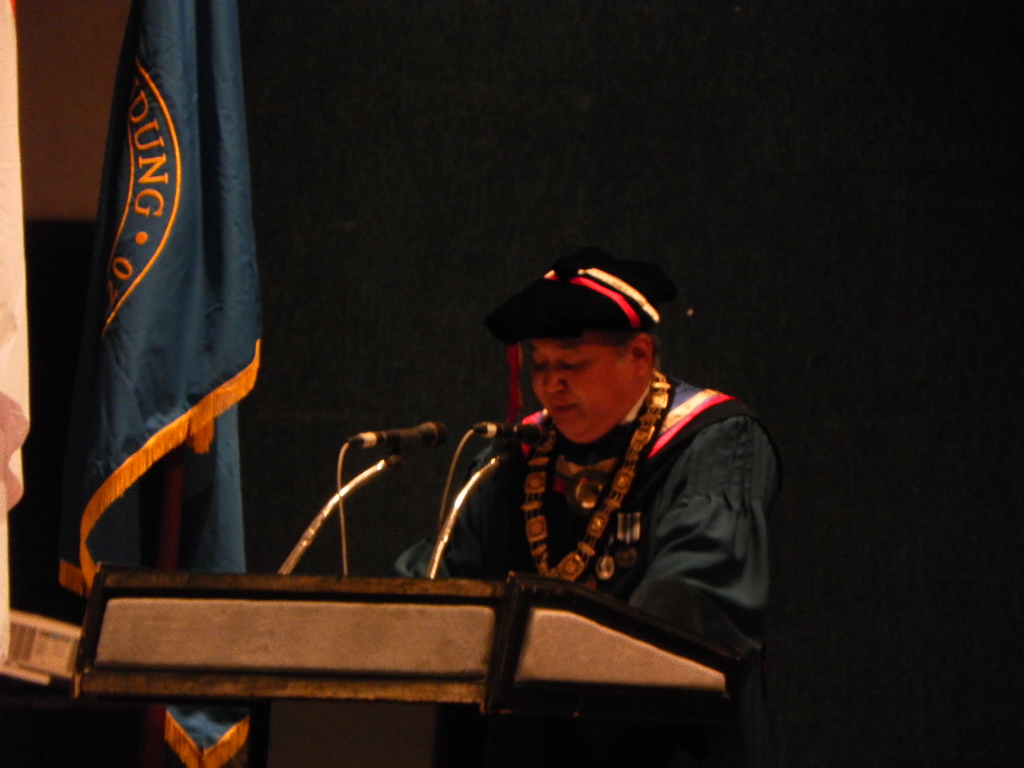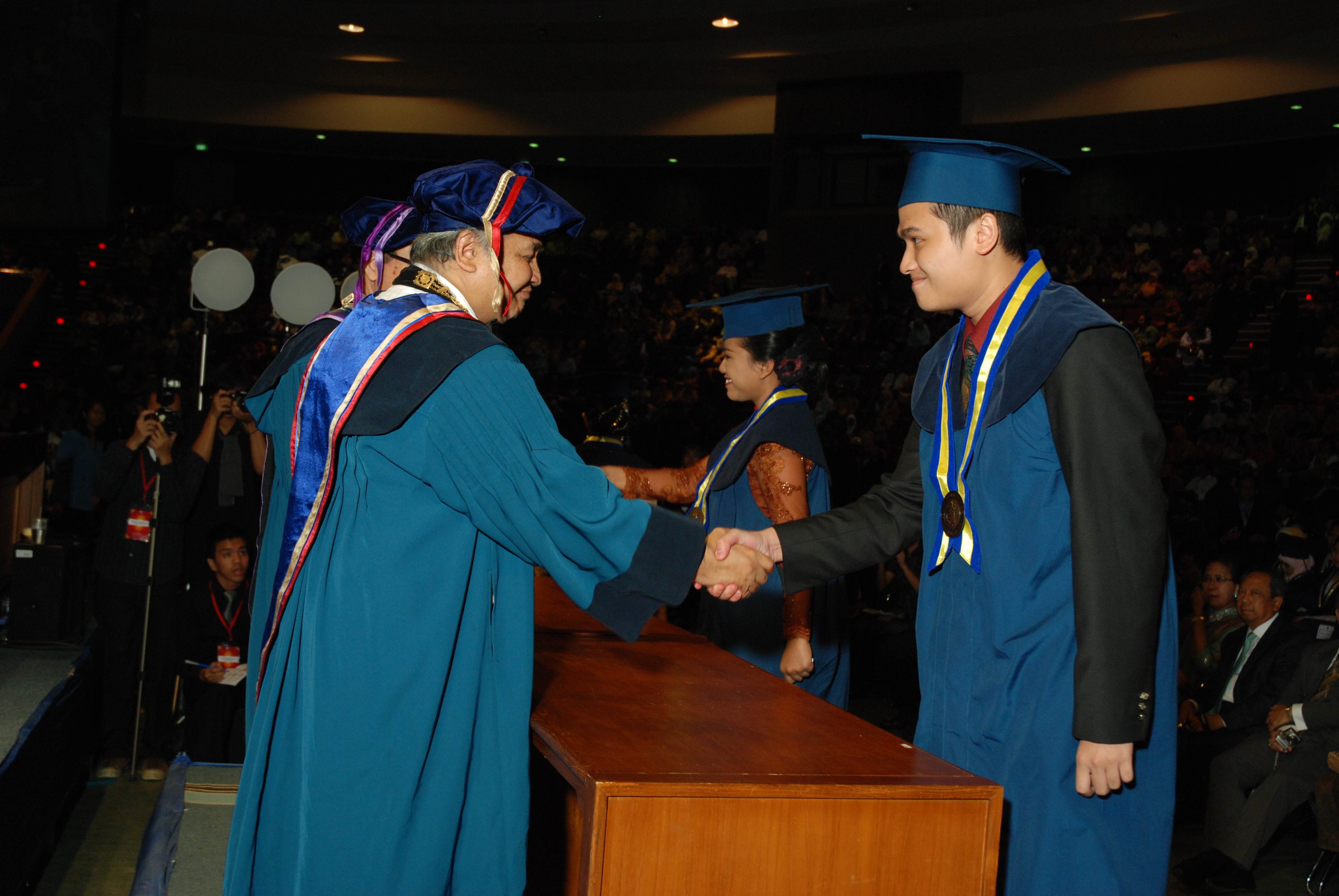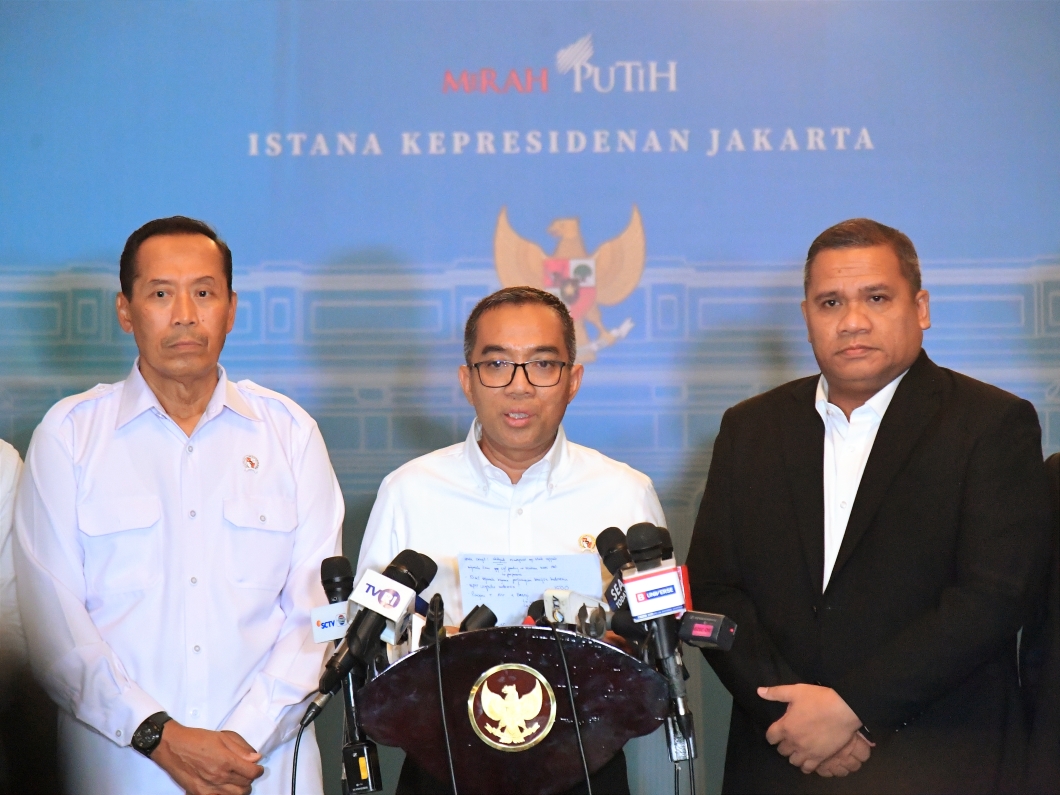ITB Rector: The Relationship Between Higher Education and Activity Research Activities in Indonesia
By Akbar Syahid Rabbani
Editor Akbar Syahid Rabbani

 BANDUNG, itb.ac.id - Sector of higher education and research sectors on a national scale was planned to be incorporated within this approach. Since the New Order government, or even before that, the administration of higher education combined with the administration of secondary education and basic education in the ministry of education. Meanwhile, the research activities carried out by institutions such as LIPI, BPPT, BATAN, LAPAN and others coordinated by the Ministry of Research and Technology.
BANDUNG, itb.ac.id - Sector of higher education and research sectors on a national scale was planned to be incorporated within this approach. Since the New Order government, or even before that, the administration of higher education combined with the administration of secondary education and basic education in the ministry of education. Meanwhile, the research activities carried out by institutions such as LIPI, BPPT, BATAN, LAPAN and others coordinated by the Ministry of Research and Technology.  The students were young people, the human potential of the nation, which every year get into colleges. Every year young people also born with honors undergraduate, masters and doctoral degrees, which was then entered into government institutions, business organizations, non-governmental organizations or become entrepreneurs. The presence of students on college campuses, as part of the flow of the younger generation, like the flow of oxygen that gives vitality of research in universities. The students always come up with curiosity and enthusiasm, critical thinking and creative thinking as well as a formidable power. The presence of students on campus have contributed in boosting the productivity and sustainability of research activities. Integrating research sector and the higher education sector allows the exchange of resources and exchange of research expertise were in each of these sectors. As an illustration, research activities at research institutions can get the support of student research activities, in particular the preparation of master's thesis and doctoral dissertation. This ni provide support for sustainability research at research institutions.
The students were young people, the human potential of the nation, which every year get into colleges. Every year young people also born with honors undergraduate, masters and doctoral degrees, which was then entered into government institutions, business organizations, non-governmental organizations or become entrepreneurs. The presence of students on college campuses, as part of the flow of the younger generation, like the flow of oxygen that gives vitality of research in universities. The students always come up with curiosity and enthusiasm, critical thinking and creative thinking as well as a formidable power. The presence of students on campus have contributed in boosting the productivity and sustainability of research activities. Integrating research sector and the higher education sector allows the exchange of resources and exchange of research expertise were in each of these sectors. As an illustration, research activities at research institutions can get the support of student research activities, in particular the preparation of master's thesis and doctoral dissertation. This ni provide support for sustainability research at research institutions. In a conversation about politics, we often hear the observers stated that "nothing was eternal in politics, except for the interest." In my opinion, this also applies in the world of research, "nothing is eternal in the study, except interest or the interest of research." The difference was related to the political interests of power while research interests related to science. The parallels, political management and research management alike to deal with the interest. Democracy gives a justification of political interests, while the principle of academic freedom provide justification for interest and research. Political cooperation requires adjustment while the interests of research collaboration requires an adjustment of interest. During these adjustments do not work, then the use of the authority / formal authority would not be fully effective. Researchers working in accordance with their respective research interests, which was guaranteed by the principle of academic freedom, and they have the capacity to establish a network of partnerships to pursue anything that interested him.
Currently, the Indonesian nation still faces a number of economic problems, so that economic development needs to be a national priority. But this was no reason for us to ignore the development in science, technology, arts, and social sciences-humanities (science and technology). It was important that universities and research institutions increase its contribution to economic development. But universities and research institutes also have another task, namely to advance science and technology and improve the nation's mastery of science and technology. According Ahmaloka, advancement of science and technology and the mastery of science and technology was an essential pillar for the independence and sovereignty of a nation. Backward nation with science and technology and the mastery of science and technology were minimal, science and technology will always depend on other nations. Despite the nation's economic growth, but that's because the economic model offered by other nations, because science and technology supplied by other nations. When undergoing democratic process using a model developed democracies of other nations, and when combating corruption was also used to eradicate corruption models offered by other nations. In fact, science was taught in schools primary and secondary level also knowledge developed by other nations. Economic problems did have an urgency to be answered. However, problems relating to the progress and mastery of science and technology can not be ignored. If these issues were not seriously addressed, the Indonesian people will be difficult to be truly independent, sovereign, and became one of the nations of the world.
Of course, we need not fear open to foreign parties. This openness allows the exchange and extracting foreign sources of science and technology to enrich the nation's science and technology. But if openness raises consumer attitudes towards foreign science and technology, it becomes a threat to the sustainability of the nation. State budget was always limited, and when the level of poverty and unemployment was still high, economic growth was to be a development priority. But this was not a reason to ignore the need for the nation's progress and mastery of science and technology. In such a situation, what is important was the understanding, commitment and the steps together, so that these limitations can be overcome. Certainly a common hope that the new government, we are going to achieve reform and progress in the fields of economics, law and politics. But our nation also requires more space and a climate that was more conducive to the advancement of science and technology and the mastery of science and technology, as an important part of the cultural progress of the nation. "May God the owner of Khazanah Sciences devote his instructions and guidance to all of us, so we were able to make science and technology as a pillar for the independence, sovereignty, and the progress of civilization in Indonesia." Ahmaloka said ending his speech.

.jpg)
.jpg)
.jpg)
.jpg)


